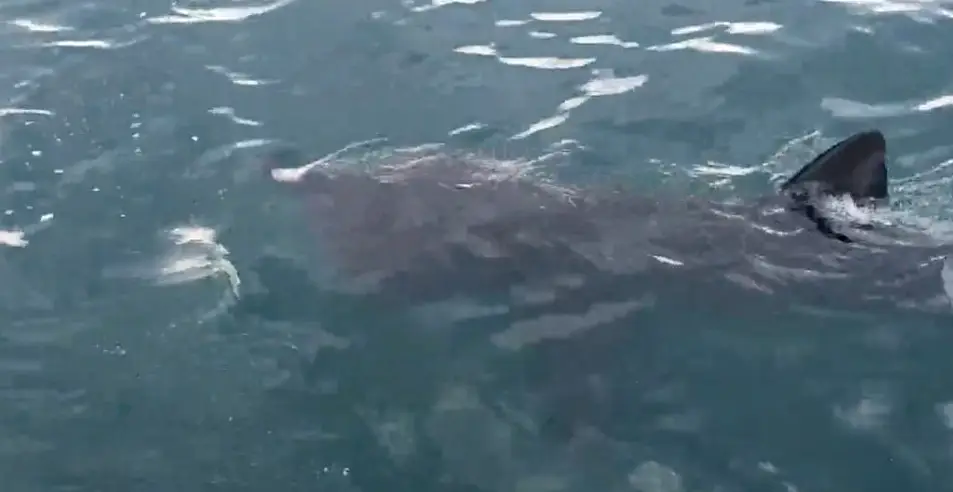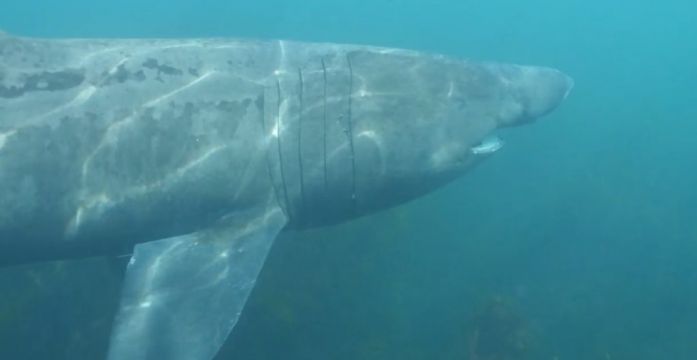Researchers from Trinity College Dublin’s School of Natural Sciences have been tagging basking sharks in West Cork in a bid to learn more about 'Ireland’s gentle giants' — some of which grow to 12 metres in length, which makes them the second-largest shark species in the world.
Assistant Professor Nick Payne and PhD candidate Haley Dolton have just returned from a week on the waves in which they managed to apply tags to four sharks.
These electronic tags accumulate data about the sharks’ behaviour and physiology as they cruise around the coast feeding on plankton.
Conservation efforts
The goal is to learn more about the anatomy and physiology of these ocean giants — information that will guide conservation efforts for an endangered species.
Sadly, the first phase of the work involved dissecting two dead basking sharks that had washed up on the coastline near Clonakilty within days of one another.
These dissections did, however, allow for detailed examination of the internal anatomy and musculature of these specimens, which helped the researchers learn more about how this species’ physiology allows them to behave the way they do, and to cope with environmental variation such as changes in water temperature.
Dr Nick Payne said: “Basking sharks are a difficult species to study because they are not very abundant and they only grace our shores for a brief period each year, from April to August, so I am delighted we were able to learn so much about them this past week. We would rather not have have had the opportunity to examine the two sharks that died prematurely before we took to the sea, but these sad events did at least help us learn more about them.
“Basking sharks are an endangered species and at risk of death from fishing bycatch and from getting struck by boats, so the more we know about them — especially their behaviour and physiology — the better chance we have of protecting them. The experience we had of observing live sharks in all their glory really emphasises that we should do our best to protect these incredible animals.”

Haley Dolton added: “The amount of data we managed to collect throughout the whole week was phenomenal and beyond what I’d hoped for. We are currently analysing all the results and look forward to sharing our findings with everyone later in the year.”
Dr Payne and Haley Dolton worked with local marine tourism operator David Edwards (West Cork Charters) to observe the free-swimming basking sharks in their natural environment, and to deploy their tags.
On the final day of their fieldwork, Nick and Haley had the opportunity to observe, in close quarters, one of the animals (a 6-metre female) they had tagged the previous day by snorkelling with it.
This research is funded by the Irish Research Council and Science Foundation Ireland.







